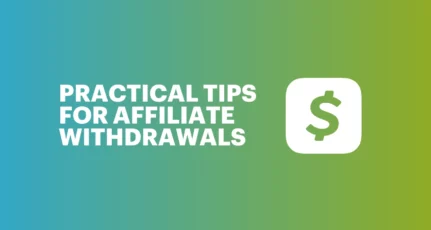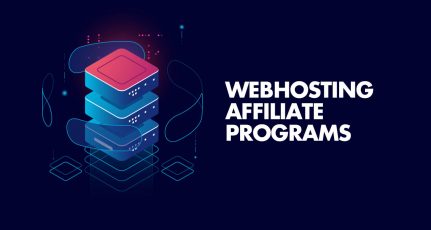
- Are you an Affiliate marketer earning affiliate income from outside India?
- Are you aware of how your affiliate income is taxed in the foreign country and India?
- How to safeguard yourself from any risk of penalty or prosecution of wrong tax filing for affiliate commissions?
Note: This article is for affiliate marketers in India. If you are not from India, kindly browse through our archives to find a relevant article for your region.
Nowadays, India is looking at a new age of freelancers and entrepreneurs who have ditched the 9-5 life and are making a decent living through affiliate marketing.

What is Affiliate Marketing?
Suppose Mr. A has an online property (Blog, YouTube, Podcast or any other) where he wants to promote products sold by a company, XYZ Ltd. Mr. A gets into a contract with XYZ Ltd. and they both decide that for every product sold through Mr. A’s blog, XYZ Ltd. would pay him an X amount of commission. This is the most common model of affiliate marketing. It is a service provided by Mr. A to XYZ Ltd.
What is the nature of Affiliate Marketing Income?
Suppose Mr. B (a Resident of India) enters into a contract with Bluehost (the USA) to promote their hosting services. In this case, Mr. B is providing affiliate marketing services to Bluehost and receiving commissions from it.
Where this income will be taxable?
Now, the question is whether this affiliate marketing commission (‘affiliate income’) earned by Mr. B is taxable in the USA or in India?
As discussed in our article on Royalty income, taxability
“Any country has a right to tax an income because of the following:
- The source of your income is in that country, or
- You are a resident of that country”
Further, the source of service lies in a country where it is performed.
Therefore, as Mr. B is a Resident of India and would perform these marketing services in India, the source of this service lies in India. Therefore, B’s affiliate income is not taxable in the USA.
However, to confirm the resident country of Mr. B, Bluehost would take a confirmation through Form W-8BEN (Form W-8BEN-E in case affiliate is a business firm / a company). For more information on Form W-8 BEN, refer to our article Link (Coming soon).
In case Mr. B does not submit a valid Form W-8 BEN, Bluehost may withhold tax @ 30% (similar to a US Resident affiliate).
How Affiliate marketing tax will be computed in India?
Income Tax – Direct Tax
In India, as the source of this affiliate income lies in India, this income is taxable as a normal business income. You would get deduction of all related business expenses while computing Net taxable income.
As per Section 14 of the Income-tax Act, 1961, there are five heads of income under which an income would fall:
- Salaries
- Income from House Property
- Profits and Gains of Business or Profession (PGBP)
- Capital Gains
- Income from other sources
The affiliate marketing income would fall under the head PGBP (can also be considered as income from Other Sources).
Example:
- Mr. C earns a total affiliate income of INR 10,00,000 during the Financial Year.
- Total cash business expenses are INR 2,00,000
- Total non-cash business expenses are INR 1,00,000
- There is no other income
| Particulars | Amount in INR | |
| Gross Receipts | 10,00,000 | |
| Less: | Cash Business Expenses | (2,00,000) |
| Less: | Non-Cash Business Expenses | (1,00,000) |
| Income under Head PGBP | 7,00,000 | |
| Gross Total Income | 7,00,000 | |
| Less: | Deduction under Chapter VIA (if any) | |
| Section 80C (Investment to LIC, PPF, FD, etc.) | (1,50,000) | |
| Net Total Income | 5,50,000 |
Now, Net Total Income of INR 5,50,000 would be taxable basis slab rates for the relevant Financial Year.
Note:
- Cash business expenses mean expenses for running a business such as domain hosting expenses, advertisement expenses, office electricity bills, office rent, the salary of employees, etc.
- Non-cash business expenses mean business expenses such as the depreciation of office computers and laptops, depreciation of furniture and fixtures, etc.
| So, let us summarise what we have discussed so far. Affiliate Marketing income received by you (an Indian resident) from a US registered company is not taxable in the USA. Further, if you furnish Form W-8BEN, the US company would not withhold any taxes from you. This income is taxable in India as a normal business income. While computing annual taxable income, you would be allowed the deduction for related business expenses. |
Well, this is it for the direct taxes part in India and the USA. Think through what you have learned till now.
Do you have some questions?
Just hold on to them till we reach the end of this article as some of them may be answered by then. If not, don’t forget to write them down in the comment box.
Goods and Service Tax (GST) on Affiliate Income – Indirect Tax
Considering the above example only, Mr. C is also required to comply with the Indirect Tax Laws of India i.e. Goods and Service Tax (GST).
GST is based on two statutory acts i.e. IGST (Integrated Goods and Services Tax) Act, 2017 and the CGST (Central Goods and Services Tax) Act, 2017. Under the CGST Act, 2017, the affiliate marketing would qualify as a supply of service. Now, let us understand the nature of this service.
The above services would qualify as Online Information and Database Access or Retrieval services (OIDAR services). Basis section 13(12) of the IGST Act, 2017, the place of supply of an OIDAR service is the place where the recipient of service is situated.
Therefore, in this case, service has been supplied outside India.
The above service would be taxable @ 0% GST if the following conditions are satisfied:
| S. No. | Conditions |
| 1 | The supplier of service is located in India |
| 2 | The recipient of service is located outside India |
| 3 | The place of supply of service is outside India |
| 4 | The payment for such service has been received in convertible foreign exchange |
| 5 | The supplier of service and the recipient of service are not merely establishments of a distinct person |
In above case, as it would fulfil all conditions, a 0% GST is applicable on the service.
Please note that 0% GST does not mean that you do not have any other compliance requirement.
Under GST law, you have either of the two options:
- Export without payment of any tax – under a Letter of Undertaking (LUT) / bond (refer Confusion Over Export of Services without Payment of IGST for more details on LUT)
- Export along with tax payment and claim refund later
For the purpose of records, you should raise invoice for these export services. See: Best invoicing and accounting software.
Kindly refer Tax on Blogging income under Income Tax & GST with FAQs for further details.
| Thus, summarising the later part of this discussion. The above service would qualify as export of service, therefore it would be taxable at 0% GST. You can either furnish an LUT and export without paying any GST or you can pay GST at the time of export and claim a refund of the same later. |
Conclusion – Tax on Affiliate income with GST
The purpose of this article is not to make you a tax expert with a 15-minute article but to make you more diligent and tax compliant. We hope that we were able to bring more clarity on the issue and help you to identify your action points.
We know that the above information overload would in no case answer all your questions, in fact, it would trigger some new ones.
Don’t hesitate to ask all of them, doesn’t matter how obvious you think the answers are, you may help someone else by asking a good question. Drop your thoughts or questions in the comment section below.
Disclaimer
- In case you qualify as a Resident of the USA, the above analysis is not applicable to you.
- The above article only deals with income in the nature of affiliate income and does not cover any royalty income. Kindly refer to our article Link for the same.
- The above article is for information only, please check with your tax consultant before taking any decision basis above. The author or publisher of this article will not be responsible in any manner in case of any loss in any form is incurred by any individual or any organisation basis above information.






Hey Digant, what about affiliate commissions earned in Crypto like Bitcoin (BTC)? How will this be taxed? As we need to pay a 30% tax on BTC to INR conversion at an Indian Crypto Exchange like ZebPay or Unocoin, do we also need to pay additional income tax / GST on the INR after conversion? Please help.
Hello DIGANT CHADHA,
But Affiliate income also falls under this… As per section 13(8)(b) of the IGST Act 2017, our services are covered under intermediary services.
13) “intermediary” means a broker, an agent or any other person, by whatever name called, who arranges or facilitates the supply of goods or services or both, or securities, between two or more persons, but does not include a person who supplies such goods or services or both or securities on his own account;
Further, as per section 13 (8), The place of supply of the following services shall be the location of the supplier of services, namely:––
i. services supplied by a banking company, or a financial institution, or a non-banking financial company, to account holders;
ii. intermediary services;
iii. services consisting of hiring of means of transport, including yachts but excluding aircraft and vessels, up to a period of one month.
So do you also considered this section? Please let me know…
Hi.
Helpful article, in international affiliate do we need to pay tax ?
Actually i am new for these laws.
Hi,
Thank you for the information.
GST will be applicable if the income in above 20 lakhs right ? Earning Affiliate commission via savings account is fine ? Or do we need current account for that ?
Hi Harsh and Digant
Helpful article. I have a question, can I file income tax under the presumptive tax scheme?
Thank you!
Just wow… I have read many article related to affiliate taxations and not cleared till now. Last year I made a mistake and also pay much higher tax than required. Actually, I have no regrets about that money because this will help in development of our INDIA some how. But having a clear cut information about affiliate income and taxation is prime requirement for me. I saw Mr.Harsh community post on YouTube, Clicked… Read… Impressed!!!
Waiting for Form W-8 BEN Post for more clarification.
Thank you Mr. Harsh for Amazing Post.
Hi Harsh 👋
Please make a tutorial on how to fill the W8BEN Form.
Hello The Author and Shout me Loud Team,
My question is that I already own a small website development and digital marketing firm.
Therefore I already pay 18% GST for all my services which include SEO, Website, Social Media and Google Advertisements, Logo Designing and other printable draining like brochure, etc.
Now I am including affiliate marketing, blogging and tutorials for side income of my firm.
So do I need to pay GST for them as well if my income from affiliate + Google Adsense is less than 20 lacs? Or what will be the scenario in my case ? (Assuming that with my services I am already earning 1 lack a month).
Regards,
Pranav Mishra
Dear Mr. Digant /Mr Harsh / Mr. Vijay
These are my questions also a new blogger.
1) Whether current account is mandatory or savings account will suffice?
2) Also whether trade license and profession tax registration in respective states are necessary?
3) Whether GST is registration is mandatory if income below 20 lakhs?
4) Further if someone exports without paying GST by furnishing LUT whether GST registration is mandatory for the same? ie. whether one can furnish LUT without having a GST registration?
4) Lastly how does prove foreign income. Is FIRC certificate mandatory?
If someone could please clarify
Hi Vikash,
Please find my response as follows:
1. Receiving business income in a personal savings account is fine till the time you are operating as a proprietorship concern only. Once you start operating as an LLP or a company, separate bank accounts are mandatory.
2. Please consult a CA or a lawyer in your jurisdiction for relevant state requirements.
3. No, GST registration is not mandatory if income from rendering services is less than INR 20 Lakhs.
4. LUT cannot be furnished without a valid GST Registration Certificate
5. In order to claim GST refunds on export benefits, you need to prove receipt of convertible foreign exchange. To evident the receipt of payment against export invoices, generally proofs demanded by Revenue Authorities is Foreign Inward Remittance Certificate (FIRC) or Bank Realisation Certificate (BRC).
thanks for sharing this informative article. Currently, as of now, I am currently focused on Indian affiliates Like Amazon, Flipkart, Cuelinks, etc. But soon I will try an international affiliate. So, this article helps me a lot to get more information regarding tax deductions and much more regarding tax. Thanks for sharing…
Digant and Harsh
Thank you for the article. Insightful. I have done a lot of research(I think I am now an unofficial CA in my mind, joke) and would be grateful if you could provide clarifications to some of my concerns.
1. Advertising on the internet. This is classified in SAC codes as For Time and Space. I wonder if this could be challenged wrt affiliate income on that technicality.
2. One of my big worry was if “Affiliate income” can be excluded from Export benefits, on the basis that it is intermediary income. Note “Intermediaries” of all kinds are excluded from claiming any Export benefits. But this fear was thankfully allayed by Circular 57 which stated that as long as the person/firm did not further the actual business of the merchant/employer – affiliate cannot be classified as intermediary.
3. However ONE big WORRY remains. With affiliate networks like “Shareasale”, there is a danger that the dept can classify affiliates as “Intermediary” – if you tell them the whole story ofcourse, since affiliates are infact furthering the “actual business” of the Employer – which is providing leads. This is UNLIKE providing leads directly to merchants like bluehost.
Would like to hear your views.
Hi Vijay,
It is a really good question.
Here are my views on it.
1. Advertising on the internet is a taxable service. So are affiliate marketing services. However, in case these services are exported outside India, related export benefits are available on it.
2. A service should qualify as an intermediary service if the agent (affiliate marketer) arranges or facilitates the provision of services by the Principal Service Provider (such as Bluehost.com). Indian GST law is not clear about whether affiliate marketing services would qualify as intermediary services or not.
But, an affiliate marketer only provides Bluehost with potential customers and gets a commission every time a sale is made by Bluehost from his affiliate link. Further, Bluehost directly renders services to its customer without the affiliate marketer being party to this transaction. Therefore, affiliate marketing services are more like “Business Support Services” and not intermediary services.
Though the position is prone to litigation, export benefits should be available on these services.
3. Same as point 2
Hope this helps
Dishant, thank you for your advice. But I have a feeling 3 and 2 cannot be treated equally.
1. The basis of an affiliate not being an intermediary is that an affiliate only receives referral commission, does nothing else, he offers leads/prospects and it is different from the actual business of the merchant(hosting, e-commerce).
2. BUT affiliate network is repository of merchant programs. Their main business is “providing leads”. When affiliate receive commission from such affiliate networks like Shareasale, the affiliate is providing those leads to merchants on behalf of Shareasale. Has all the markings of an intermediary service in my layman view. Do you think this is same as providing leads directly to merchants? Point to ponder.
Everyone:
GST adherence is extremely important. It appears simple and noone usually asks too many details at the Range office, and you may not invite central audits with anything less than 5 crore – BUT if you are audited and an overenthusiastic officer latches onto a technicality and piles on interest and penalty – say over a period of 5-7 years – he can take away MOST of your earnings. This is unlikely, but we have to be careful. Very careful.
Hi,
Thank you for the information.
GST will be applicable if the income in above 20 lakhs right ? Earning Affiliate commission via savings account is fine ? Or do we need current account for that ?
GST registration is compulsory if you are liable to reverse charge. Meaning if you buy services from a foreign company like SEMRUSH(that is not registered in India), then you are liable to reverse charge – which means you have to register even if you earn less than 20 lakh.
This is the rule. But it is not much enforced, as noone goes through credit card statements of individuals. But yes, thats the rule.
Some get around this by making such payments from spouse account (where no business is conducted)
Refer circular: https://www.cbic.gov.in/resources//htdocs-cbec/gst/51_GST_Flyer_Chapter12.pdf;jsessionid=DCD75AF9A0A1FE0035880EBEC65DED41
Hi Ajay,
Please find my response as follows:
1. In case of export of services, threshold limit of INR 20 Lakhs is applicable.
2. Earning business income in a personal savings account is fine till the time you are operating as a proprietorship concern only. Once you start operating as an LLP or a company, separate bank accounts are mandatory.
Hope this helps.